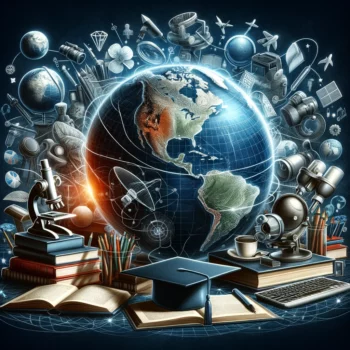
Exploring Global Citizenship in the ‘Going Global’ Workshop
Introduction
In an increasingly interconnected world, the concept of global citizenship has gained prominence in discussions about education and international development. On April 27, 2023, the Centre for Global Education Belfast and Comhlamh in Dublin hosted the “Going Global Workshop,” led by Dr Barry Cannon from Maynooth University. The workshop, funded by Irish Aid, aimed to delve into the concept of global citizenship and its implications for education and development. This post explains some of the themes and discussions from this enlightening event.
Why This Research?
Global citizenship is emerging as a crucial idea in the international development field. Linked to Target 4.7 of Sustainable Development Goal 4 (SDG 4), which focuses on ensuring inclusive and quality education for all while promoting lifelong learning, global citizenship aligns with the broader goals of fostering a more interconnected and empathetic world.
The Irish Aid’s Global Citizenship Education Strategy for 2021-2025 demonstrates a commitment to integrating global citizenship concepts into education. This workshop sought to gather insights from practitioners about the meaning and content of global citizenship in their work, provide theoretical context, and encourage the development of practical strategies.
Exploring Citizenship and Democracy
The workshop began with a dive into the foundational concepts of citizenship and democracy. TH Marshall’s definition of citizenship as a status with rights and duties within a political community formed the basis of the discussion. The relationship between citizenship and democracy, as well as its various models, was explored. Attendees delved into the idea that democracy is a continually evolving concept, shaped by popular struggles to expand and redefine rights.
Globalization’s Impact on Democracy and Citizenship
The advent of globalization has significantly influenced the dynamics between individual citizens and the state. Globalization’s spread of transplanetary social relations has challenged traditional notions of citizenship tied exclusively to the state. This has led to debates about the changing nature of welfare, loyalty, and political participation in the context of globalization. While globalization has expanded the reach of citizenship through transborder impacts and awareness of global issues, it has also raised concerns about the erosion of state-based citizenship.
Interrogating Global Citizenship
The concept of global citizenship was a central theme of the workshop. Attendees engaged with Irish Aid’s definition of global citizenship as ordinary people striving to improve the world. A video showcased children as “Global Citizen Kids in Action,” prompting discussions about the dimensions of citizenship—status, rights, membership/identity, and participation. Participants questioned whether the portrayed vision of global citizenship adequately encompassed the complexity of citizenship in a globalized world.
Redefining Citizenship in a Global Context
The workshop explored transitional concepts that address the challenges posed by globalization. Concepts like de-nationalized citizenship, incipient citizenships, and acts of citizenship were discussed. These ideas consider how citizenship can evolve beyond the traditional framework of nation-states and respond to the transnational realities of today’s world. Acts of global citizenship, seen as transversal and transnational struggles for rights, provide a lens through which individuals and groups can challenge dominant power structures and redefine citizenship.
Conclusion
The “Going Global Workshop” delved into the intricate relationship between citizenship, democracy, and globalization. It highlighted the fluid nature of these concepts and the need to adapt them to a world shaped by interconnectedness. The discussions underscored the importance of understanding global citizenship in a nuanced manner, one that considers the multi-layered dimensions of citizenship in both local and global contexts. As our world continues to evolve, exploring new frameworks for citizenship becomes vital in ensuring a more just and equitable global society
